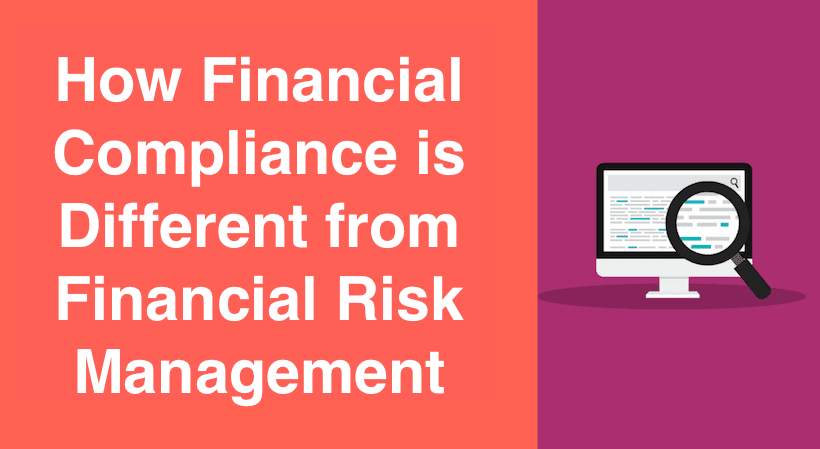The 2008 financial crisis, numerous advancements in technology and cross border trading have led to increased regulatory scrutiny and regulation. This has subsequently led to increased Financial Compliance which has increased the requirement for better Financial Management.
Financial risk management:
There is a continuous flow of funds in and out of an organization. This may lead to financial risk. There are numerous risks to an organization, so sound risk management is required to help identify potential risks in advance, analyse them and take necessary steps to minimize the impact. All these factors affect the Financial Risk and need to be properly managed in any organization.
Financial Compliance:
All the organizations that we see or hear of, differ in their size, their scale of operations, their businesses and how they can be managed. Irrespective of this, organizations have to comply with various laws, rules, regulations and, policies which may be internal or external. Compliance with all this helps in preserving the integrity and reputation of the organization. The importance of financial compliance will be increasing drastically as more and more organizations and consumers are migrating towards online platforms for their transactions.
Although compliance and risk management are closely related, they do differ.
IMPORTANCE OF FINANCIAL COMPLIANCE:
Advertisement
Compliance with established rules and regulations helps protect organizations from a variety of risks, while risk management helps protect organizations from risks that could lead to non-compliance.
| Financial Compliance | Financial Risk Management |
| Here rules and regulations are already in place. They have been made keeping the working environment and the manner of operation of the organization in mind. An organization has to follow them. However, they are prescriptive in nature. | Forecast the impact the risk may have on the organization. Creating innovative ideas to minimize the risk. |
| Noncompliance may lead to heavy penalties, fines as well as damage to the reputation. | It depends on analysis in order to overcome risks or determine risks worth taking. |
| This process doesn’t lead to value creation. | Being aware of the risk beforehand may prevent heavy damages and innovation may lead to value creation. |
| For e.g., Before the material is dispatched to the customer’s, the quality of the material is to be checked by the Quality Control department, whether the quality made is as per the customer’s requirement and generally accepted market standards. | For e.g., An organization based on the analysis is forecasting that investing in a new start-up will increase the value of the organization. |
If an organization is not serious about its financial compliances, its resources will be diverted towards payments of fines, penalties, and litigations which will harm its reputation and may even lead to shutting down of business. On the other hand, if investments are made without analysing the risks, it may lead to huge losses that couldn’t have been forecasted earlier.
So, in order to excel, an organization needs to focus on financial compliance and financial risk management as an independent department and at the same time keeping both the departments in synchronization.
In rapid changes in technology and the removal of various trade barriers, it’s necessary for an organization to have such compliances and risk management avenues which help them to increase their reputation, maintain its integrity and help to create more value for all the stakeholders involved.
Must Read – Sub Fields of Accounting
